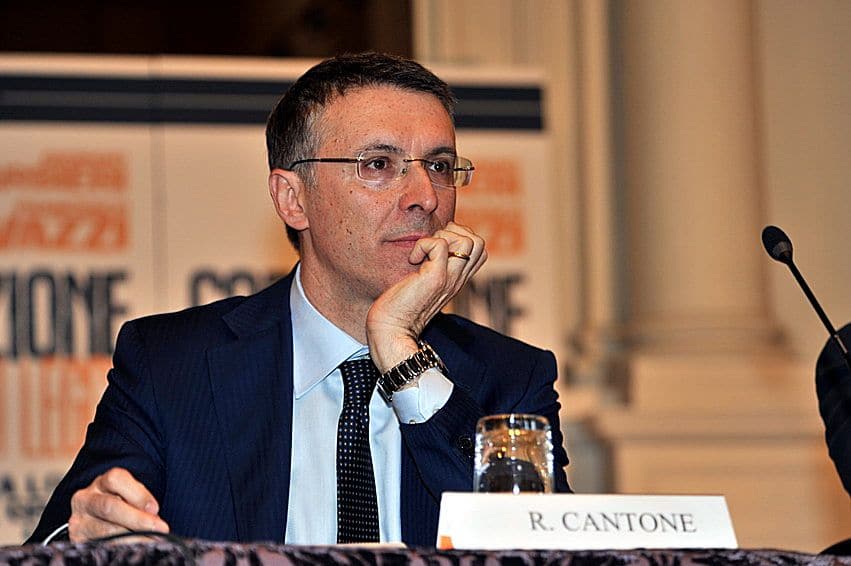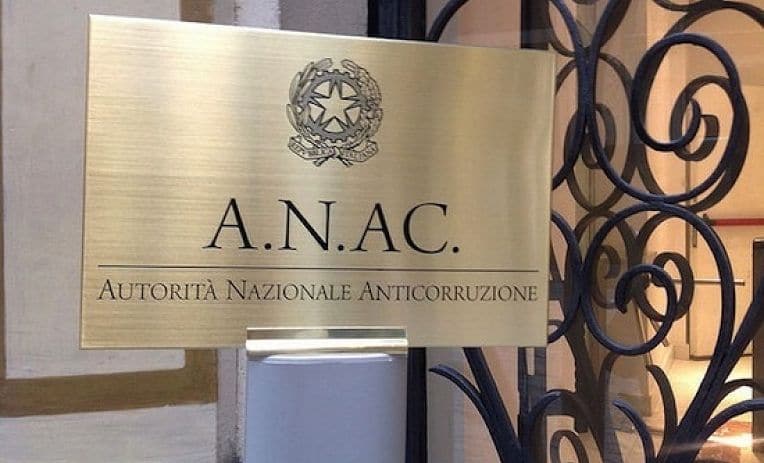Raffaele Cantone he decided to leave the National Anti-Corruption Authority. He writes his reasons in a letter published on the Authority's website.
He writes: “I feel that a cycle has definitively ended, also due to the manifestation of a different one cultural approach towards the Anac and its role.

I leave the presidency of Anac with the awareness that since 2014 our country has made great strides in the field of corruption prevention, so much so that it has become a reference model abroad. The National Anti-Corruption Authority itself, established in the wake of scandals and emergencies, today represents a heritage of the country. These are circumstances that should be a source of pride for Italy, instead they are often not recognized as they deserve.
Of course, corruption is far from eradicated but it would be ungenerous not to take note of the progress, also highlighted by the countless and not at all obvious awards received in recent years from international organizations (European Commission, Council of Europe, OECD, OSCE, Monetary Fund) and by the significant improvement in the sector rankings“.
The Minister of Public Administration, Giulia Bongiorno, commented at the Ansa forum as follows: “ANAC highlighted that the theme of prevention is as important as that of repression. But, having said that, some guidelines and regulations of the Anac failed to combine the need for transparency with those of efficiency and speed: I had signaled it to Cantone that work had to be done to streamline it. Se per prevenire tutto blocchiamo tutto, non si fa niente”.
Nessuno, ovviamente, mette in discussione l’encomiabile impegno che Cantone ha messo contro la corruzione. Hanno però fatto discutere il Codice degli Appalti, la cui applicazione avrebbe bloccato appunto il sistema degli appalti e, dal nostro punto di vista, il Codice di Comportamento nel SSN.
Le osservazioni più attuali riguardano il famoso Codice degli appalti, “creatura” di Cantone – il cui mandato all’ANAC sarebbe scaduto nel 2020 – criticato ferocemente da molti tra cui anche Piercamillo Davigo, l’ex pm di Mani pulite. Per Davigo quel codice “è solo un ostacolo alle persone per bene, mentre chi vuole delinquere continua a farlo”. E’ argomento d’attualità perché è in discussione la legge “sblocca cantieri” proprio per snellire gli ostacoli posti dal Codice.
Ma non è su questo su cui vogliamo entrare, la cosa non ci compete e non sta a noi esprimere giudizi. Vogliamo invece entrare nel merito delle “Linee Guida del Codice di Comportamento nel SSN” ed in particolare al punto 7 a pag. 10 in cui si dice:

-
the reference to the discipline to regulate access within the healthcare structure of scientific representatives and of subjects who, on behalf of the manufacturing/distributing companies, propose the sale or illustrate the use of drugs and/or medical devices. The same should configure transparency measures aimed at tracing contacts between professionals and subjects appointed by the aforementioned companies such as, by way of example, the establishment of a register certifying the access of informants or other subjects mentioned above within the healthcare institution, the interlocutor and the motivation and the prohibition to receive the subjects in question outside a predetermined time slot
A useless demonization of a category, that of the ISF, potentially of corruptors. Without considering that the ISFs themselves do not sell, without considering that the corruption phenomenon cannot be resolved with the increase in bureaucracy which discourages honest people. Code that inspired regions such as Emilia Romagna to introduce such abstruse rules as to prevent the work of the ISF, but leaving the green light to all other figures interested in the sale, such as the case of prof. Fanelli teaches. And if the ISFs can't do their job, the companies have no choice but to fire them. Obviously the corruption has not been scratched and either follows the rules diligently or occurs outside of scheduled meetings. It seems obvious, but…
Redazionale – 23 luglio 2019
